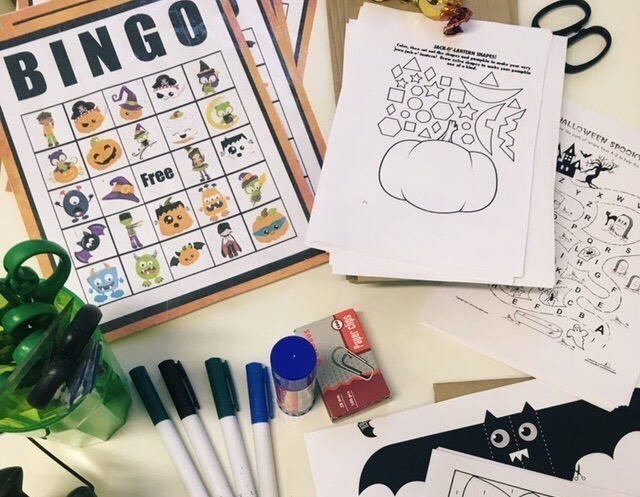When it comes to teaching ESL vocabulary, no one wants to hand out huge word lists and ask students to silently memorize them. Instead, teachers know the value of using fun and engaging activities to help students recall new English words. Let’s look at eight ESL vocabulary games you can use in the virtual or physical classroom and how games can be an asset to your students!
If you’re new to teaching, you’ll want to get initial training and qualification with a TEFL certificate. You can explore our online TEFL courses to get started!
Why should you use ESL vocabulary games?
There are many reasons to use ESL vocabulary games in your classes. Here are a few:
- Games usually incorporate a lot of repetition, which is helpful for students who are trying to memorize new words.
- Games are fun! Students who are having fun are more likely to be motivated and to participate in the lesson. They’ll probably even forget that they’re actually learning!
- Playing games promotes teamwork and can help you build rapport with your students.
- Incorporating lively, engaging games during class helps students focus and captures their attention when they’re feeling tired or unmotivated.
- Some friendly competition is a great way to get students to practice the language – you might find that even quiet or shy students begin speaking up in order to win a game!
- Games take the pressure off of students who are afraid to make mistakes since games feel less formal than, say, a vocabulary drill where a student is called out alone to come up with a definition. The fun – and sometimes silly! – nature of games can help students feel more confident trying out English words and making mistakes.
Check out 12 low-prep ESL games for teaching online.
What are some vocabulary games for ESL students?
1. Hangman
Just about everyone knows how to play Hangman! (If you are unsure of the rules of the game, here’s a refresher.)
This game not only allows students to use their new words but forces them to ask each other questions and review the alphabet.
- Pro Tip: You can also play this game in your online classroom using a virtual whiteboard and drawing tools.
Want to learn how to make your virtual ESL classes with kids more interactive? Take a short Micro-credential course in Games and Activities for the Online Classroom – Young Learners!
2. TEFL Bingo

This ESL vocabulary game is another classic! You can print out Bingo cards if you’re teaching in the physical classroom. Online teachers can send them as PDFs for virtual lessons instead.
- Pro Tip: You can create your own Bingo cards using this free online tool.
Get more ESL classroom games and activities for kids.
3. ESL Songs
Music is an engaging and fun way to teach new vocabulary, as well as proper pronunciation and grammar. You can use songs to teach just about any type of vocabulary. Below is an example of teaching words that have to do with the body:
Here’s how you can structure an ESL song activity:
- Pro Tip: If you prefer, you can also give them a handout or an online worksheet with the outline of a body for them to fill in either on their own or with a partner. For homework, have students write sentences describing what each body part is used for.
Get even more ideas on how to use ESL songs with kids and teens.
4. What Is It?
This is a great virtual game to use if you have webcam software such as ManyCam. You can play two ways:
- ManyCam and other digital tools have virtual stickers and graphics that you can display on-screen. Click on the image that represents the vocabulary word you want to elicit from students so that they can see the image on the screen. The first student to correctly call out the name of the object or action they see gets a point. The student with the most points at the end wins.
- Alternatively, you can have students take turns, and you can display an image for a split second, having it just flash on the screen. See if the student correctly guesses what the image was and, if so, they get a point. If they do not answer correctly, ask a different student, who gets a chance to steal the point.
- Pro Tip: If you’re teaching in person or you don’t have ManyCam, you can simply hold an object up (realia) or a picture of an object or action that you printed out beforehand.
Read more about how to use ManyCam when teaching English online.
5. Missing Object
This game, which comes from the Micro-credential Games and Activities for the Online Classroom (Very Young Learners) course, is super simple to put together, as it only requires gathering some realia from around your house or classroom. Here’s a demonstration of the game in action:
- Show the student(s) a collection of items on a tray. You can collect objects that go along with a certain theme, like food or clothing, or that relate to the vocabulary you’ve recently taught and want to review.
- Go over the items one by one, focusing on pronunciation and getting students to answer questions about the object’s function, appearance, etc.
- While the tray is out of view of the student, remove one object. Show the tray to the student again and see if they can identify which object is missing. Give them a clue if they’re struggling!
This game is a little more suited to young learners but could work for older students if you make it more difficult by using a large number of small objects on the tray.
6. Jeopardy
This classic game serves as a wildly popular learning tool among students. Jeopardy is an engaging and fun exercise that’s very versatile, as it simply consists of question boards, where questions simultaneously increase in difficulty and points. This game can be tailored to just about any age group and is as easy to play in person as it is online. If you have an online class or a classroom with a projector, this site has simple, pre-made Jeopardy boards organized by skill level. Choose how many teams will be playing, and let the competition begin!
If you are teaching with limited resources, here’s a step-by-step guide to making a low-cost, tech-free version of Jeopardy. The purpose of the game is to practice concepts while inspiring enthusiasm and a fun, competitive spirit in the classroom. Students will love forming teams and putting their ESL skills to the test!
7. Charades
If you’re looking for ways to get students moving and breathe some life into your ESL lessons, charades is a surefire winner. Students can put their acting skills on display and either work competitively or cooperatively to practice English vocab. Simply write some vocabulary concepts on slips of paper, let students draw them from a bowl, and let their creativity run wild!
Adapting this game for online classes is fairly simple too. Instructors can privately message a student the word or phrase they need to act out, then let the student take center stage on their webcam. Young learners make this game especially fun, but that doesn’t mean it’s just for kids. Among the many ESL vocabulary games for adults, charades is often a popular one. It’s a well-known party game that can be used to bring adults out of their comfort zones in a safe and fun way.
Some concepts that can be reviewed using charades are:
- Action verbs
- Present progressives
- Emotions
- Animals
8. Rhyme Time / Around the Room
There are two variations of this game: Rhyme Time and Around the Room. The purpose of both is to encourage quick thinking and vocabulary recall. Students can either sit in a circle or be assigned a number to know when their turn will be. For Rhyme Time, the teacher will choose a starting word, and students each have to follow with a different word that rhymes. No repeating! If a word is repeated or the student can’t think of a new word, they’re out. The last student remaining wins the game.
Around the Room is played nearly the same way, but rather than rhyming, words have to begin with the next letter in the alphabet. A simplified version is to choose a single letter and have students come up with as many words starting with that letter as possible. This is a great game for teenage learners. They often start to offer answers at a rapid-fire pace and have fun when a word gets repeated.
- Pro Tip: If you’d like to ramp up the class’ energy by setting a time limit, the YouTube channel Epic Timers has a variety of videos to set the pace of your ESL game.
With these simple ESL vocabulary games, you’re all set to enliven your classroom and help your students recall new words and concepts they’re learning. Have fun!





